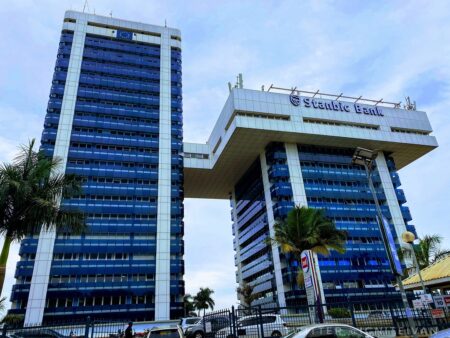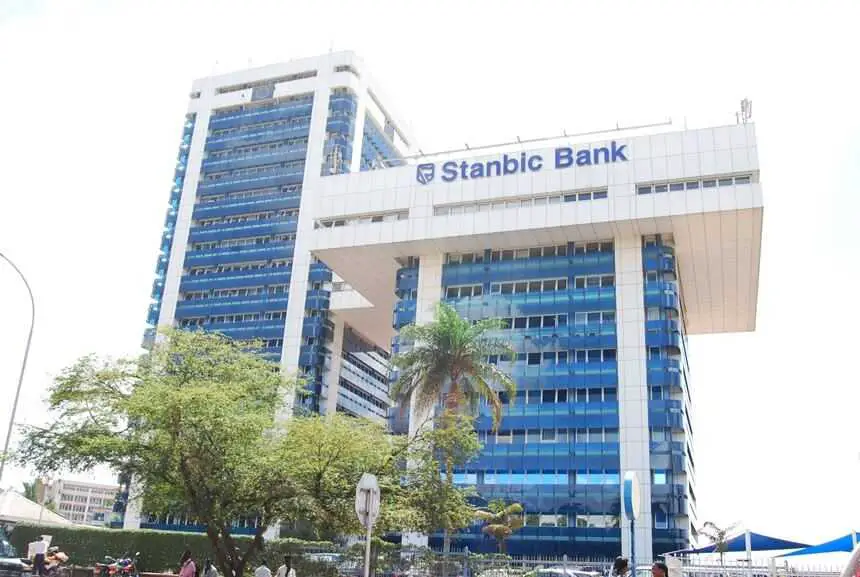- How transition finance can catalyse Africa’s green industrial revolution
- Stanbic PMI Report: Mixed performance as Kenya’s agriculture, construction offset manufacturing decline
- Uganda’s land management gets a tech makeover to boost transparency
- Nigeria’s output dips fastest in 19 months on a sharp rise in costs
- Apple faces growing backlash over Congo exploitation
- Why East Africa is staring at higher wheat prices in 2025
- Nairobi Gate SEZ pumps $7 million into Kenya’s agro-processing industry
- What impact will the US election have on Africa?
Browsing: Stanbic Bank Uganda
- For millions of households in Uganda, remittances play a vital role in safeguarding food security, healthcare, savings and investment opportunities.
- IFAD data shows 75% of money sent to Uganda is used to fight poverty and improve access to nutrition, health, housing and education.
- The remaining 25 percent is used to support small businesses and facilitate access to financial products.
The UN’s International Fund for Agricultural Development (IFAD) has partnered with Stanbic Bank Uganda (SBU) in a plan to reduce the cost incurred by Ugandans sending money back home by half through a digital payment platform dubbed FlexiPay.
The partnership will also provide remittance recipients, especially in rural areas, with digital and financial training to promote the savings culture and foster digital finance uptake among these communities.
Cost of remittances in Uganda
At the moment, the average cost of sending money back home for Uganda’s migrant workers is 11.3 per cent, …
The 10 richest investors in companies that are listed on the USE own stakes amounting to $18.5 million. A huge portion of the market is controlled by institutional investors and parents companies of the listed entities while the 10 richest investors control about 0.30 percent of the market’s $6.1 billion valuations.
The USE was named as the best performing stock exchange in Sub-Saharan Africa in 2010.
Currently, there are nine domestic companies listed on the Uganda Securities Exchange.…
In April, the private sector in Uganda continued to recover with employment, purchasing orders and business conditions consistently improving since February this year.
This is according to a monthly report sponsored by Stanbic Bank and produced by IHS Markit dubbed ‘Stanbic Purchasing Managers’ Index (PMI)’.
According to the report Uganda’s PMI rose to 57.8 in April 2021 from 53.2 in March which reflected a monthly improvement in conditions.
“Firms posted an increment in new orders and output across each of the five broad sectors thereby extending the current sequence of expansion and growth at the start of the second quarter which is an indication that Uganda’s economy is stabling. A number of respondents indicated that they had secured new customers during the month.” Said Ronald Muyanja, the Head of Trading, Stanbic Bank Uganda.
Purchasing activities in Uganda increased which led to a rise in stocks of inputs, the report noted.…
Stanbic Bank Uganda in partnership with the United Nations (UN) and other financial agencies have created an enterprise fund, Economic Enterprise Restart Fund (EERF) to provide low-cost financing to the informal sector to help them recover from the impact of the pandemic.
According to a press release, the Economic Enterprise Restart Fund (EERF) will provide cheaper funding to SMEs, savings and credit cooperatives (SACCOs) as well as village savings and credit associations (VSLAs) to improve their productivity and provide both digital and technical support in capacity building and institutional development.
To help increase consumption, create employment opportunities and reduce poverty in the rural and peri-urban areas, EERF will also drive financial inclusion through the digital banking process and build economic activity sustainability.
The fund was launched by Anna Juuko, the chief executive officer and Rosa Malango, the UN resident coordinator.
“Our commitment to the Economic Enterprise Restart Fund is an …
Uganda’s private sector continues to recover from the impact of the Covid-19 pandemic as business conditions improved in August after a near standstill of activities during the lockdown put in place between March and the end of May.

This is according to the latest Stanbic Purchase Managers Index (PMI) report which shows that Uganda posted a 54.6 increase from 50.3 in July, which is the highest since February.
According to the report, the reading is above the positive threshold of 50.0 and substantially higher than the 46.5 reported for June.
The PMI is a composite index, calculated as a weighted average of five individual sub-components: New Orders (30 per cent), Output (25 per cent), Employment (20 per cent), Suppliers’ Delivery Times (15 per cent and Stocks of Purchases (10 per cent).
According to Stanbic Bank Uganda head of global markets, Kenneth Kitungulu, the steady improvement is due to the fewer …
Stanbic Bank Uganda unveiled the Trade Club which allows Ugandan business people to grow their enterprises by getting access to contacts, market information and a platform to network with other people across the world.
“We are pleased to introduce the Trade Club. It’s a new solution designed for Ugandan businesses to connect with other businesses locally, regionally and internationally with a view of easing both import and export trade. This is a free digital networking platform enabling us to positively contribute to the growth of our business clients, because when they grow and prosper– so do we. By growing our customers’ businesses we can deliver towards our purpose of driving Uganda’s growth.” Said Jonathan Wamara, the Head Universal Trade at Stanbic Bank.
The Trade Club offers trade skill for importers and exporters across 190 countries as well as with over 200 pages of trade information for both importers and exporters, …
Stanbic Bank Uganda profits dropped by $1.80 million in the first six months of due to the impact of Covid-19 on the businesses of its clients.
The bank’s Chief Executive Officer, Ms Anne Juuko, said despite the difficult operating environment, Stanbic’s performance in the first six months of the year has shown the banks resilience and commitment to implementing a vigorous strategy in the current economic conditions.
“We reported Profit after Tax of Shs127.4 billion, 4.9 per cent down from Shs134.0 billion in the previous year, due to the impact of Covid-19 Pandemic on clients’ business,” she said.
Stanbic Bank customer deposits from January 1, 2020 to June 30, 2020 grew by $299.64 million which represents a 26.6 per cent year on year growth.
”This growth was enabled by our strong client ecosystem engagement and simplifying client onboarding. Loans and advances increased by Shs661 billion, which represents 24 per cent …
Uganda National Oil Company (UNOC) to invest $840 million in joint infrastructure projects in the oil and gas sector in Uganda, said Proscovia Nabbanja, the Chief Executive Officer.
Nabbanja signed a memorandum of understanding with Stanbic Bank to facilitate the two entities collaborating to train local entrepreneurs ahead of oil developments.
She said a significant amount of money either through loans or the national budget will go towards investments in the refinery, pipeline, bulk trading, storage tank as well as the industrial park.
“We hope that this level of equity will be spread in a period of five years in our national budgets to ease pressure on the country’s debt burden,” she said. “The investment will be based on the medium-term expenditure framework.”
Also Read: Uganda projected growth too ambitious, World Bank
Out of the planned $4 billion in the oil refinery and $3.5 billion investment in the pipeline, UNOC …











